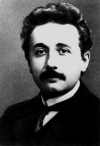Exam Strategies
Here are a few of the strategies I give my math students for exams. Much of it applies to other subjects too. I hope you or your kids find them helpful.
- Always try to do what makes sense rather than what you think you are supposed to do. Human memories are notoriously fickle; if we just try to remember, we are likely to get some details wrong or apply the wrong rule to a given situation. This is especially true for cumulative exams like finals, because we may not have thought about this stuff for months.
Never hand in an exam early! Once you're done, go back and check your work. The key questions to ask are what does the question mean, and how do I know if I did that? So reread the question and see if there's a way to know besides just solving the problem again. If you solved an equation, does your solution make the equation true? Did you find all solutions if there's more than one?) If you solved a word problem, does your solution (the punch line) fit with the problem statement (the joke)? If you found an antiderivative, is its derivative the original function? And so on. If there's no obvious way to check, see if you can solve the problem a different way. Lots of kids hand in tests early either to show off or because they're sick of taking the test. Every time I encouraged a student at LHS to take a test back and check it more, the student admitted that he or she had found and fixed mistakes.
Show your work as neatly and as well organized as you can. That will help you think clearly, so you're more likely to get it right. Also, that will also help you communicate with your teacher. If you do the work on a separate sheet (encouraged), number the problems and write your name on it! Remember teachers try to be fair but they are human beings. You want them in a good mood. They may have hundreds of exams to grade; make it easy for them! Think of that as a
sacrifice to the god of partial credit.
BTW, exams are not the time to save paper. Use as much as you need.If you don't know how to do a problem, skip over it (duh) but think about it enough so you can keep it in the back of your mind. You may surprise yourself after having it rattling around your head for awhile. Even if you don't know how to solve the problem, see if you can figure it out based on what you do know. The more you make sense of the problem, the more you can use your whole brain so the more likely you are to be able to figure out problems you don't yet know how to do. Recently as an example I gave a student a simple quadratic equation to solve, knowing she'd never learned how to solve those. She solved it (well, one solution anyway)! I wanted her to have the experience of solving a problem using her own wits rather than just doing what she's
supposed
to do.One generic technique that works well for a lot of unfamiliar problems is plug in what you know; solve for what you don't!
Get a good night of sleep! There's lots of research coming out about how we don't really learn stuff until we've had a good night's sleep in which our brains integrate the new stuff with what we already know. Plus all the cramming in the world doesn't help if you're a basket case.
- If you go to Lexington High School, the Math Department has given students a huge gift, the final exam archive. Most likely you have been given some of those problems for practice, but you can do many more! Start with the most recent tests, which are likely to be closest to the current ones, and work backwards.
Good luck!
passionatelycurious.com • Math tutor • Computer Science tutor • What's with the '90s Web site? • contact
